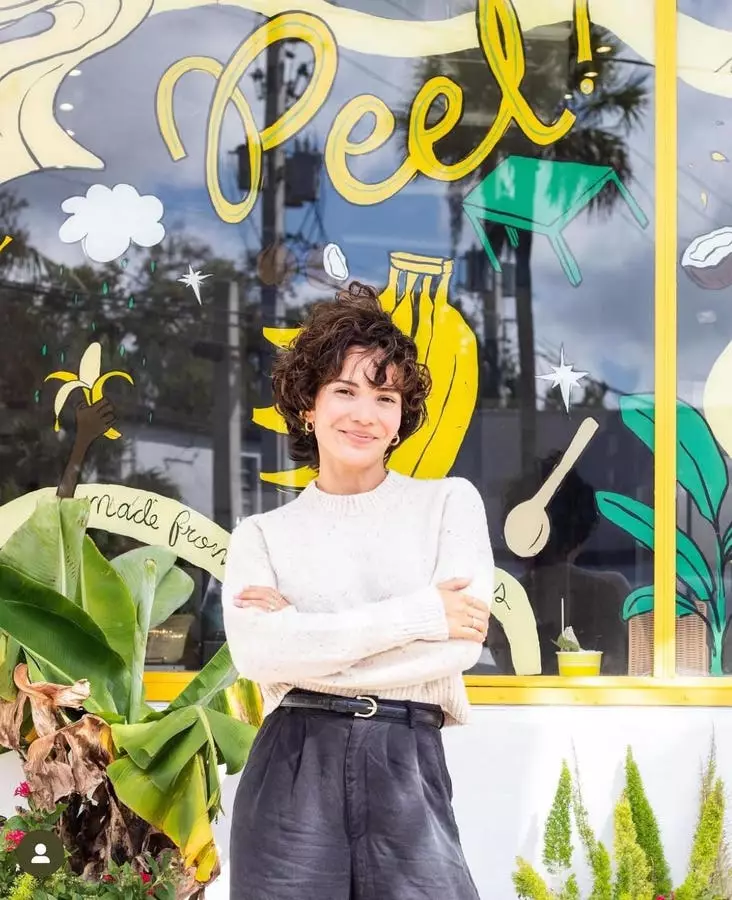In a world obsessed with perfection, Peel dares to challenge societal standards by elevating “ugly” fruit into a symbol of beauty and purpose. The brand’s core philosophy revolves around transforming blemished bananas—once destined for waste—into a delicious, visually appealing soft serve. This not only disrupts the conventional aesthetic expectations but also advocates for a more inclusive and sustainable view of beauty. Peel’s approach shows that authenticity and imperfection can be powerful drivers of change, inspiring consumers to rethink their perceptions beyond superficial grades of perfection. Rather than masking flaws, Peel embraces them, turning what’s usually discarded into a unique culinary experience that celebrates natural differences.
The significance of this philosophy extends beyond the plate; it prompts broader conversations about sustainability, waste reduction, and consumer consciousness. In a society increasingly aware of environmental issues, Peel’s mission to repurpose imperfect produce resonates deeply. By using bananas with minor bruises or blemishes, the brand reduces food waste and challenges the destructive culture of aesthetic conformity. Their approach exemplifies that flawlessness is often an illusion and that genuine beauty lies in authenticity—an insight that could influence various industries, from fashion to beauty, urging a shift towards valuing realness over unrealistic ideals.
The Intersection of Creativity, Purpose, and Commerce
Peel exemplifies how purpose-driven entrepreneurship can carve a distinctive identity within a crowded market. The brand’s innovative use of bananas as a base for soft serve not only showcases ingenuity but also infuses the product with a narrative of environmental stewardship. Founder Valeria Alvarez’s personal journey illustrates a compelling evolution from tech and marketing into a culinary innovator motivated by a desire to create joy and reduce waste. Her experience traveling through Indonesia and witnessing local food practices planted the seed for Peel’s concept—using accessible ingredients creatively, sustainably, and with a sense of humor.
What sets Peel apart is its ability to combine a playful aesthetic with serious social and environmental values. Its collaborations with high-profile brands like Gucci and Glow Recipe are not mere marketing stunts but curated partnerships rooted in shared values. Every collaboration appears carefully selected to reinforce Peel’s mission: to promote beauty in imperfection, to celebrate diversity, and to foster joy. These partnerships amplify the brand’s message of sustainability and authenticity, making Peel not just a soft serve purveyor but a cultural catalyst encouraging consumers to embrace imperfection and prioritize meaningful consumption.
From Local Miami Roots to Global Cultural Influence
Peel’s story is an inspiring example of how a small, purpose-driven business can expand its influence beyond local origins. Starting as a weekend farmer’s market stand in Miami, the brand quickly captured community attention with its simple, joyful approach—turning a trash problem into a delicious, shareable experience. The business’s resilience was tested during the COVID pandemic, but rather than retreat, Alvarez and her team used this period to refine recipes, expand sourcing, and deepen their commitment to sustainability.
Today, Peel operates multiple locations and is on the cusp of a significant expansion planned for 2025. Its physical spaces are more than just retail outlets—they are communal hubs where people gather, connect, and foster a sense of belonging. The banana-shaped logo serves as a whimsical reminder of the brand’s playful spirit, which prioritizes happiness over health halos. Peel’s aesthetic—minimalist yet vibrant—has made it fashionable among lifestyle and beauty brands. Its collaborations with luxury and lifestyle names are testament to its broad appeal, balancing the cheeky with the sophisticated, proving that good design and meaningful purpose can coexist seamlessly.
The Challenge of Authentic Sustainability in Scaling
As Peel expands, maintaining its sustainability ethos will become increasingly complex. Alvarez’s honesty about the challenges of scaling an eco-conscious business is noteworthy; growth often entails compromises, from sourcing to packaging. Yet, her commitment to balancing expansion with responsibility highlights a new paradigm of entrepreneurial integrity. Initiatives like community-driven fruit rescue programs exemplify their innovative approach—transforming consumer participation into both education and engagement.
Peel’s dedication to reducing waste—rescued bananas, composting organic waste, and using biodegradable packaging—illustrates that true sustainability isn’t an endpoint but a continuous journey. Alvarez’s nuanced perspective acknowledges that scaling sustainably is difficult but crucial, insisting that small, mindful choices can ripple outward. Her vision positions Peel not merely as a food brand but as a movement that challenges consumers and businesses alike to rethink waste, beauty, and joy holistically.
Despite its playful exterior, Peel embodies a powerful statement: beauty and sustainability are inherently linked. Its journey from a small Miami stand to a cultural phenomenon reveals the transformative potential of aligning purpose with innovation. In a future where consumers crave authenticity and brands seek meaningful impact, Peel sets a compelling example of how imperfection can be a profound source of inspiration and change.

